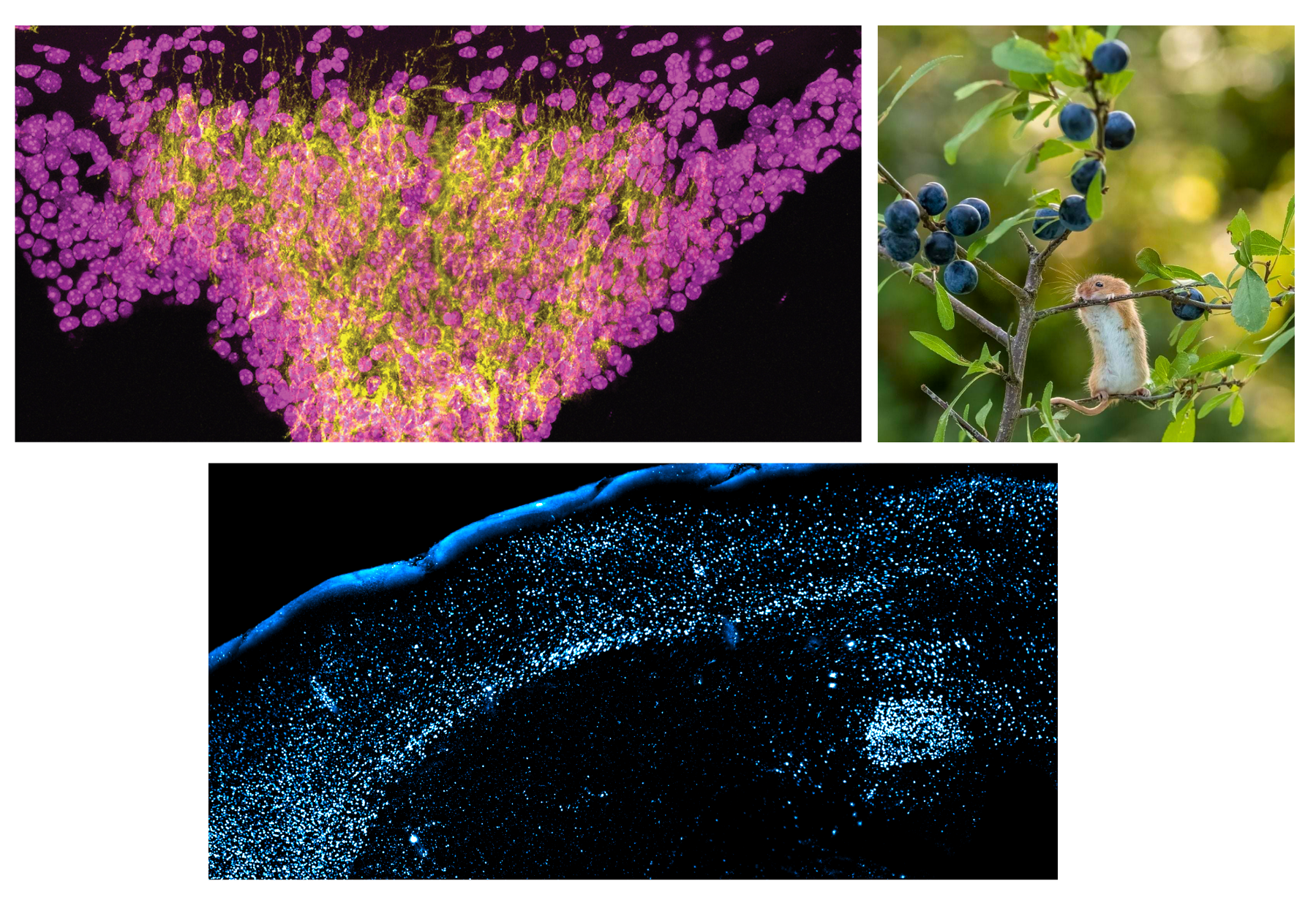Abstract
Body-to-brain communication influences nearly every aspect of our behaviour, from immediate feelings of thirst or hunger to lifelong pair bonds and mood states. Yet, technical and conceptual barriers have kept the neural mechanisms that underlie these profound behavioural effects largely unexplored. My work aims to develop and apply new tools for studying how signals from the internal organs influence neural dynamics in the brains of behaving animals — with an initial focus on eating and drinking — by combining approaches from systems and computational neuroscience, physiology, biochemistry, and bioengineering. In my talk, I will first briefly describe how mouth- and gut-to-brain signals enable the brain's thirst system to predict changes in hydration state before they occur and adjust drinking behavior preemptively. Second, I will describe in depth how delayed gut-to-brain food poisoning signals specifically reactivate the brain's representation of flavors from a recent meal, which provides a mechanism for learning aversions to the taste of foods that make us feel sick. Together, these findings provide neural explanations for long-enigmatic elements of everyday human experience, while also revealing fundamental principles for how learning and motivation algorithms are instantiated in the brain.

Biography
Dr. Zimmerman is currently a postdoctoral fellow in Dr. Ilana Witten's lab at the Princeton Neuroscience Institute. He was previously a PhD student in Dr. Zachary Knight's lab in the Department of Physiology at UCSF. He develops new experimental and computational tools for studying how the brain and body communicate, with a focus on the role of body–brain interactions in learning.
